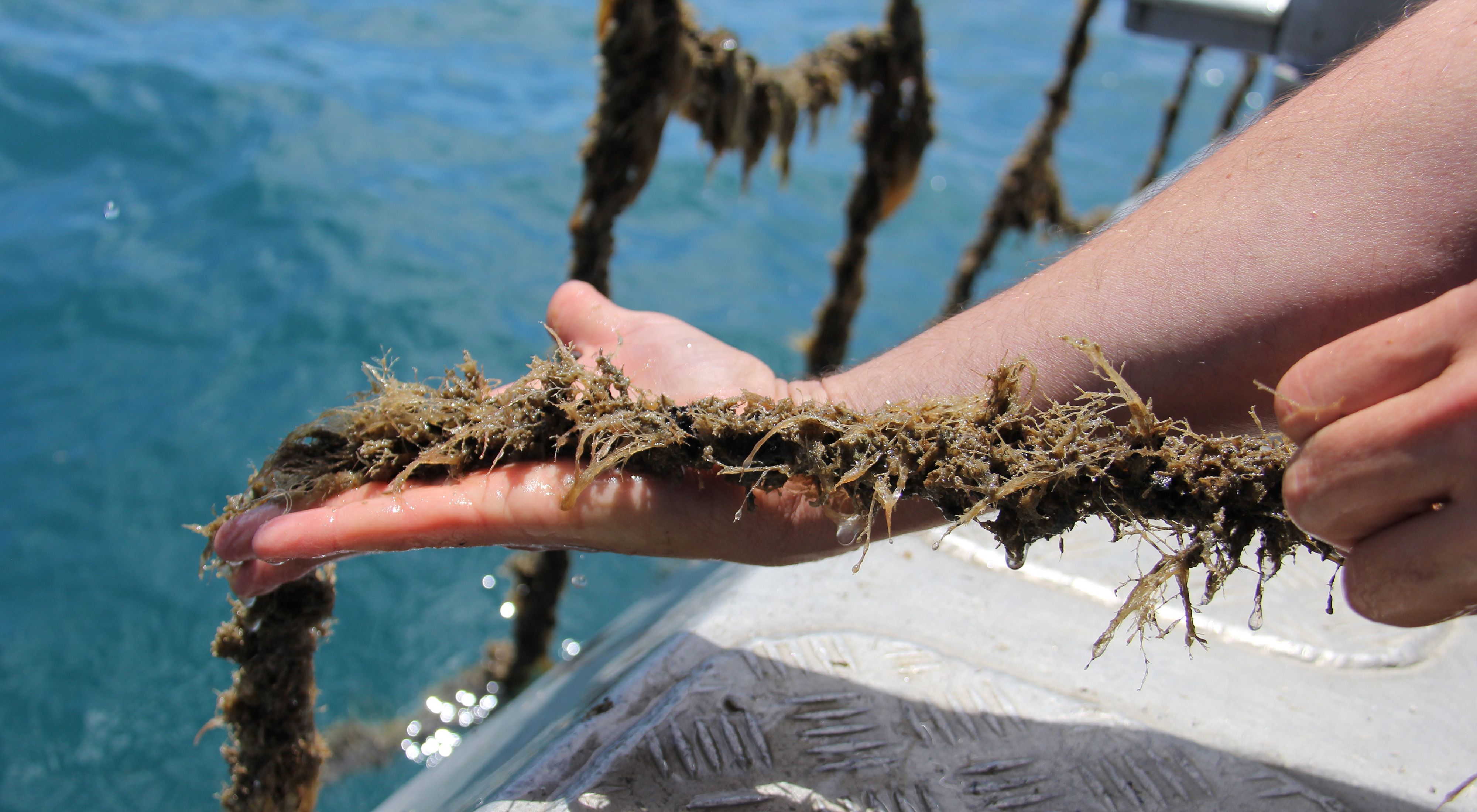Media Contacts
-
Laura Griffin
Currie Communications
Email: laura@curriecommunications.com.au
More than 100 local residents and school students are volunteering to help grow mussels to rebuild shellfish reefs in the Peel-Harvey Estuary.
This ‘mussel gardening’ program is headed by The Nature Conservancy and funded by the Alcoa Foundation, as part of a project to re-establish shellfish reef ecosystems in this iconic waterway.
Community volunteers, alongside students from Coodanup College and John Tonkin College, will grow about 50,000 mussels to help stock a new reef substrate that will be built in the estuary next year.
Once established, the shellfish reefs will enhance local fish stocks, help improve water quality and boost the local economy by attracting fishing and eco-tourism.
Over the next few weeks, Peel mussel gardeners will receive their specially designed ‘baskets’ containing juvenile mussels grown on a local aquaculture lease operated by Harvest Road Oceans.
They will then hang the baskets off their private jetties and start tending to them – measuring mussel growth and regularly cleaning the baskets.
“We are so thankful to our community shellfish gardeners, who will raise the mussels from juveniles to adults,” said Richard Campbell, The Nature Conservancy’s Oceans Coordinator for the Peel region.
“The adult mussels will be used to help turn a new reef base into a living shellfish reef that will provide food and shelter for other marine life and bring many other benefits to the estuary and local economy.”
Richard and Project Coordinator Theo Kearing have trained the shellfish gardeners to monitor and maintain the mussels.
“Over the next six months, we’ll support the gardeners to measure mussel growth and survival, as well as monitor the other types of marine life that grows on the baskets” Richard said.
The project is a part of the ‘Three Rivers, One Estuary’ initiative supported by The Alcoa Foundation and delivered in partnership with The Nature Conservancy, Peel-Harvey Catchment Council and Greening Australia.
Alcoa Australia Corporate Affairs Director Jodie Read said the company was proud to be supporting this important initiative to improve the health and biodiversity of the Peel-Harvey Estuary and the three rivers that feed it, the Serpentine, Murray and Harvey.
“These waterways are the lifeblood of the Peel region delivering vital environmental, economic and social benefits,” Ms Read said. “It’s vital we all work together to protect and improve these waterways, which are under increasing pressure, and the shellfish reef and the great efforts of our community shellfish gardeners are an important part of that work.”
Community efforts to grow mussels support The Nature Conservancy’s National Reef Building Project, that aims to rebuild 60 shellfish reefs alongside communities which need them most around southern Australia. If achieved, it will make Australia the first country in the world to recover a critically endangered marine ecosystem.
More information
- Learn more about mussel gardening here.
The Nature Conservancy is a global conservation organisation dedicated to conserving the lands and waters on which all life depends. Guided by science, we focus on getting things done efficiently and with the greatest positive impact for conservation. We’re a trusted organisation working in more than 70 countries and territories around the world on innovative solutions to our world’s toughest challenges so that nature and people can thrive together. To learn more about The Nature Conservancy in Australia, follow us on Facebook.
